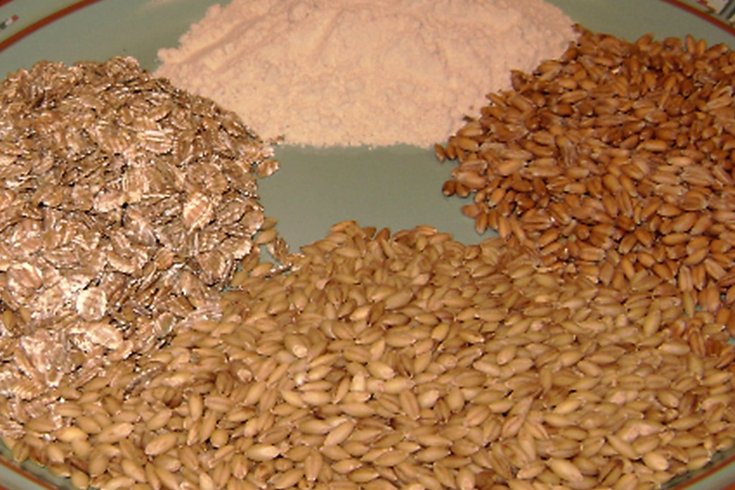
July 25, 2019
 Pdeitiker/via Wikimedia Commons
Pdeitiker/via Wikimedia Commons
Four sources of gluten: Clockwise from top left: high-gluten wheat flour. European spelt, barley and rolled rye flakes.
If you have thought about adopting a diet free of gluten to lose weight and improve your overall health, you are not alone. “Gluten-free” has become a popular buzzword in health and wellness communities, but is it the right diet for you?
Going gluten-free basically means avoiding foods containing gluten, a group of proteins found in some grains, including wheat, barley, rye and triticale. For people living with celiac disease and certain other medical conditions, eliminating gluten from their diet is a necessary component of treatment. But there is little evidence that such a diet has any weight loss or general health benefits.
Celiac disease is an autoimmune disorder in which gluten causes damage to the small intestine, preventing your body from absorbing needed nutrients. Gluten ataxia is lesser-known gluten-related autoimmune disorder that affects your nerves and muscles.
Some people may also have a wheat allergy or gluten sensitivity. With non-celiac-related gluten sensitivity, you can experience symptoms like abdomen pain, bloating, diarrhea, constipation and even headaches after eating gluten, but there is no damage to your small intestine.
With a gluten sensitivity, often it is not just gluten that is the culprit. According to the Academy of Nutrition and Dietetics, often FODMAPs (Fermentable Oligosaccharides, Disaccharides, Monosaccharides and Polyols) are also to blame. These are a group of carbohydrates that are difficult for the small intestine to ingest.
When adopting a gluten-free diet, the most important thing to remember is to include healthy substitutes to your diet so you still get the proper nutrition your body needs. Eat plenty of fresh fruits and vegetables, beans and nuts, dairy, lean meats, fish and poultry and non-gluten grains like rice, quinoa, cornmeal and millet.
But if it isn’t medically necessary for you to avoid gluten, Lindsay Malone, R.D., of Cleveland Clinic, advises against going gluten-free because you will miss out on a lot of essential nutrients. If you are trying to eat healthier, she says, it is better to reduce the amount of processed foods in your diet instead.